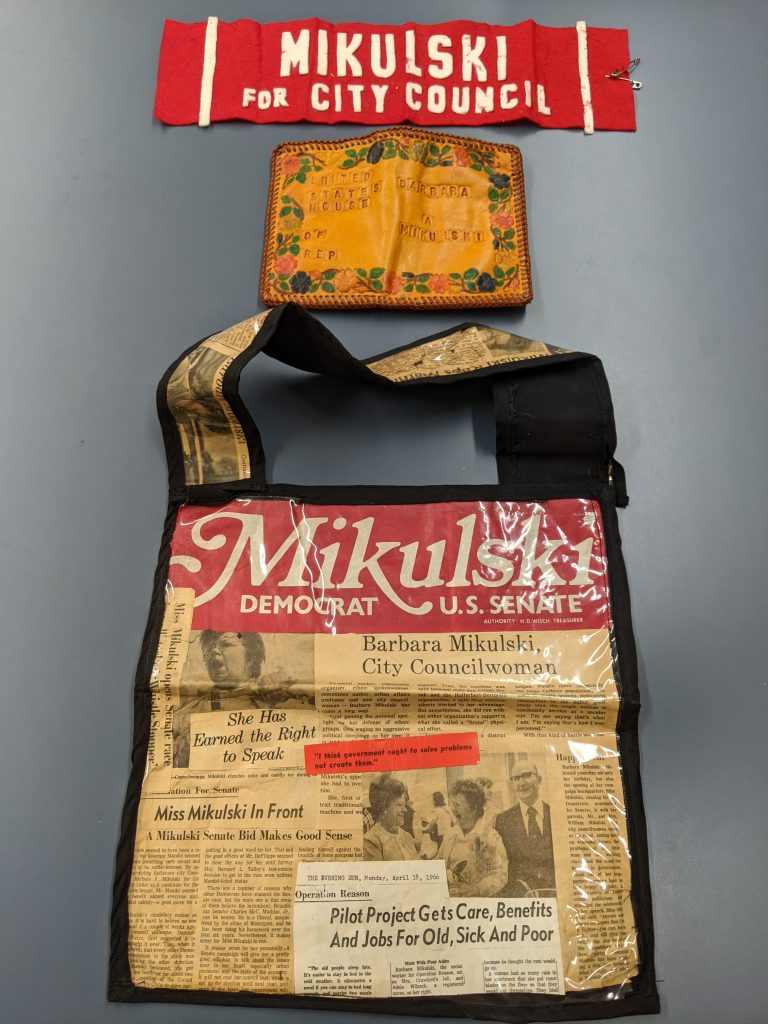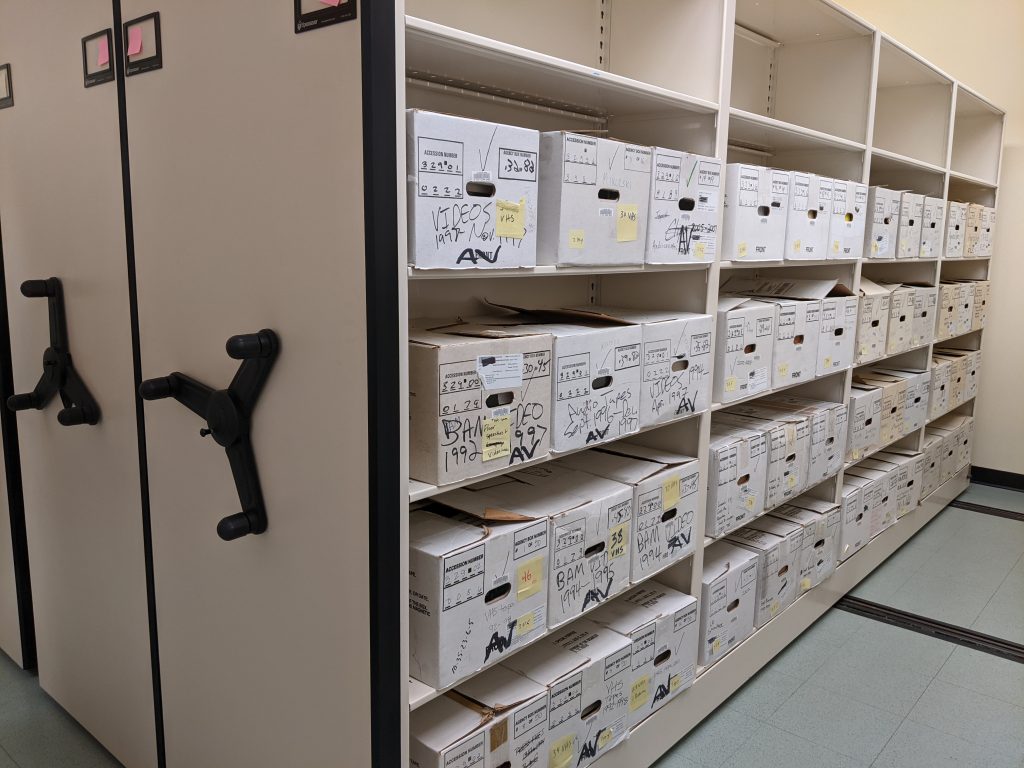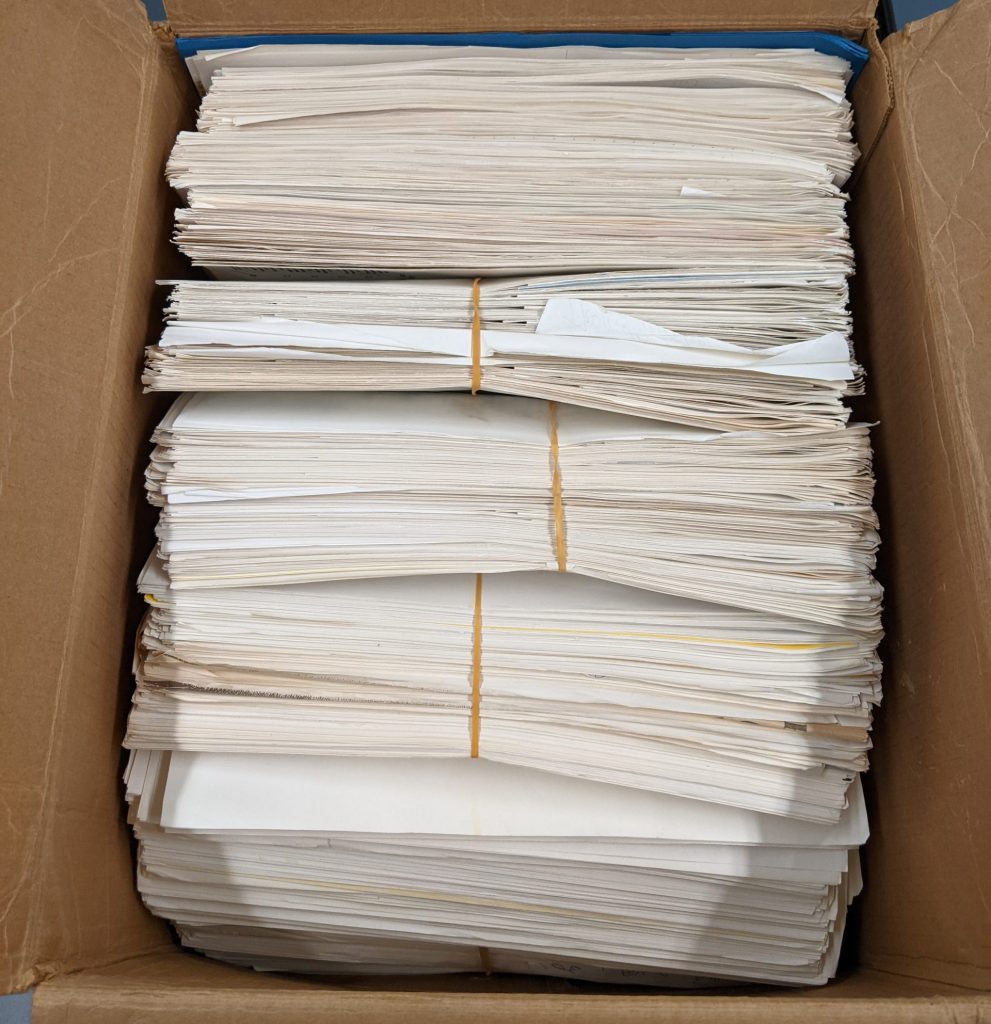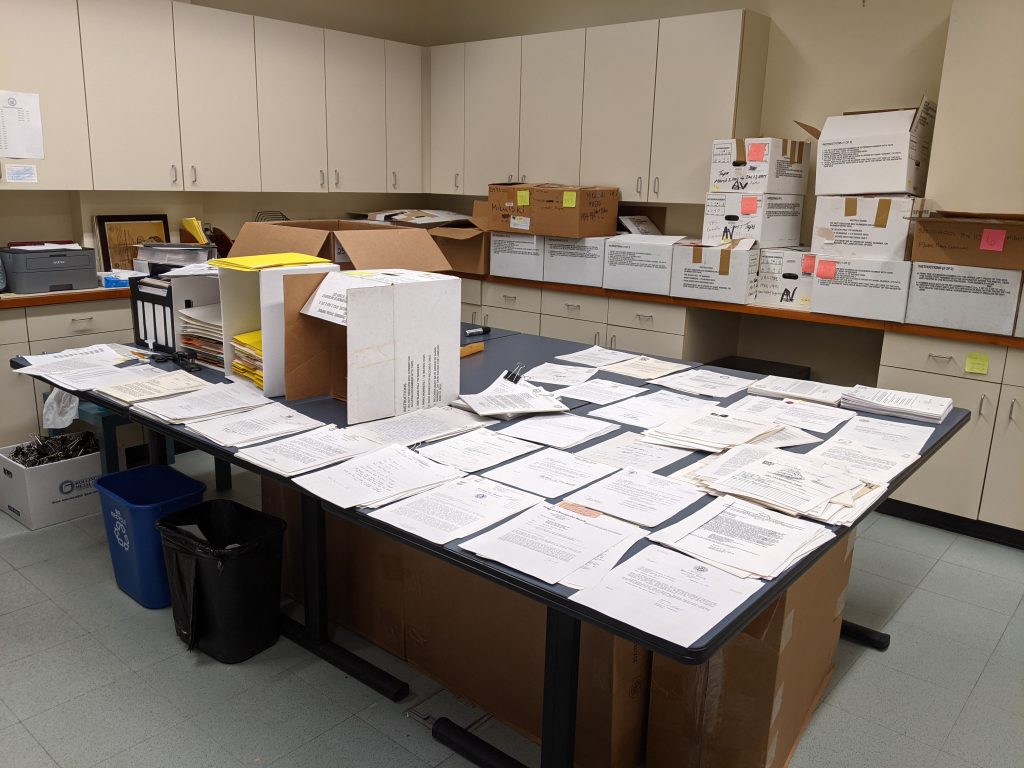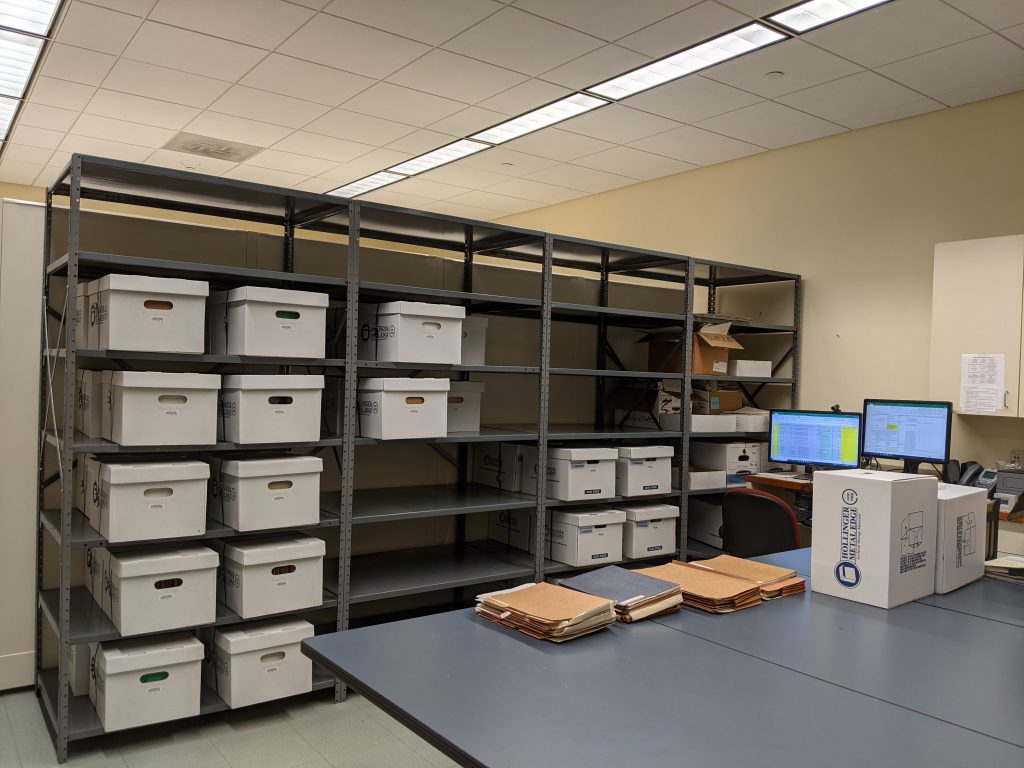The Mikulski papers collection contains the professional and political papers of Democratic Senator Barbara A. Mikulski, covering her early activism and years of service on the Baltimore City Council (1971-1976), in the U. S. House of Representatives for Maryland’s 3rd Congressional District (1977-1987), in the U. S. Senate for Maryland (1987-2017), and as a Homewood Professor of Public Policy at Johns Hopkins University, as well as her political service to the Democratic Party and mentorship of women Senators as Dean of Women.
The collection contains approximately 1100 boxes of physical material and 3.7 terabytes of digital material, the bulk of which relate to her time in the U. S. Senate. Senator Mikulski served on the Committee on Appropriations throughout her entire Senate tenure, and she chaired the committee from December 17, 2012 to January 3, 2015. She achieved many of her major legislative accomplishments through her work on this committee, including funding NASA’s final servicing mission for the Hubble Space Telescope. Her work on the Senate Committee on Labor and Human Resources, which later became the Committee on Health, Education, Labor, and Pensions, is also well represented in this collection. While the committees’ records are located at the National Archives and Records Administration, legislative records produced by Senator Mikulski’s staff and offices may be found in this collection.
Throughout her time in office, Senator Mikulski was a champion of civil rights, with a particular focus on gender and labor rights. Her records demonstrate a commitment to serving constituent needs, such as her efforts to support labor and industry at the Port of Baltimore and in initiatives to restore the environmental health of the Chesapeake Bay and the jobs and industries it supports. Notable topics covered in this collection include women’s health, pay equity, equal employment opportunities, reproductive rights, spousal impoverishment, national service initiatives, veterans services, housing development, funding for scientific and technological research, and regulatory reform and facilities modernization of federal science laboratories.
The Mikulski papers are open for research. Check out the collection finding aid to request materials from this collection for your visit to Special Collections.

